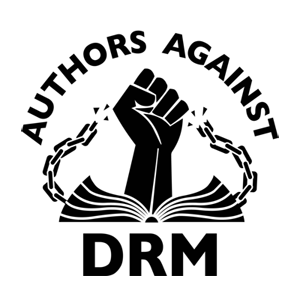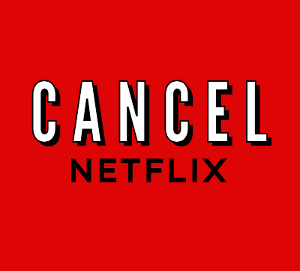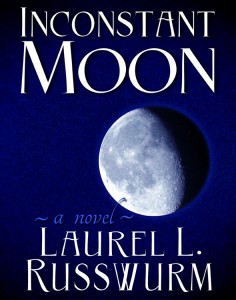Boston, Massachusetts, USA——Yesterday (Thursday, April 13th, 2017) Defective by Design granted Tim Berners-Lee the first ever Obedience Award, recognizing his work to help wealthy corporations add DRM (Digital Restrictions Management) to official Web standards. Inspired by the MIT Media Lab Disobedience Award, the Obedience Award highlights activity upholding the status quo despite an…
Category: Defective By Design
Raspberries to @timbl

Boston, Massachusetts, USA——Yesterday (Thursday, April 13th, 2017) Defective by Design granted Tim Berners-Lee the first ever Obedience Award, recognizing his work to help wealthy corporations add DRM (Digital Restrictions Management) to official Web standards. Inspired by the MIT Media Lab Disobedience Award, the Obedience Award highlights activity upholding the status quo despite an overwhelming ethical case against it. Today is the first opportunity for the addition of DRM to become final as per the formal process for setting Web standards.
As the director of the W3C (World Wide Web Consortium) Berners-Lee previously fought to advance Web users’ rights, supporting net neutrality, privacy and universal access. Born in the UK, he was knighted by H.M. Queen Elizabeth in 2004 and awarded the Order of Merit in 2007. Most recently, he received the Association for Computing Machinery’s A.M. Turing Prize.
Though he was previously critical of DRM, Berners-Lee decided not to take a stand against Netflix, Microsoft, Google, and Apple when they began developing a Web standard for streaming video DRM, instead encouraging them to do so within the W3C. These wealthy companies supply copious membership dues to the W3C.
Their proposed standard, EME (Encrypted Media Extensions), will be the first W3C specification designed specifically to control and restrict users. As of today, EME has progressed through the entire W3C development process, and awaits Berners-Lee’s final decision to approve or veto it as an official part of the Web.
Defective by Design and a coalition of organizations have warned that standardizing Web DRM would lead to an increase in the amount of restrictions encountered by users, as creating them becomes cheaper and easier. They argue that EME will invite more abuses of users like the Digital Editions DRM, which was found to be exposing user information to snoopers, and more digital restraints preventing important, legal things that people do with media, such as accessibility modifications, translation, commentary, and archiving. Many are concerned that, should Berners-Lee allow the W3C to add DRM to video standards through EME, existing efforts to DRM-encumber text and image standards would be accelerated.
Since the beginning of EME’s development, the proposal has faced dissent from within and outside the W3C. In the last month, hundreds of concerned Web users have telephoned Berners-Lee to demand he reject EME, while a UNESCO (United Nations Educational, Scientific and Cultural Organization) official, two members of the European Parliament, and a coalition of human rights groups published statements urging him to reconsider. In 2016, demonstrators protested against EME at the W3C’s meetings in March and September, as the Open Source Initiative and a group of high-profile security researchers urged Berners-Lee not to ratify EME without additional protections for those harmed by DRM. In 2013, a coalition of organizations led by Defective by Design wrote a letter opposing EME and more than 34,000 people signed an anti-EME petition.
Presenting the Obedience Award, the Defective by Design team issued this statement:
“Overcoming his lifetime history of visionary work and his initial ethical concerns with DRM in Web standards, Berners-Lee turned a blind eye to the diverse groups opposing Encrypted Media Extensions. This man persevered to champion the interests of wealthy media and technology corporations. For his commitment to obedience, we recognize him today.”
Defective by Design requests that readers who are impressed with Berners-Lee’s tenacity take five minutes to call him about EME, giving him a chance to further prove his commitment to obedience.
The Obedience award echoes a 2013 “Oscar for Best Supporting Role in The Hollyweb” granted to the W3C as a whole for beginning work on EME.
Learn more about Encrypted Media Extensions and the campaign to stop it.
About Defective By Design
Defective by Design is the Free Software Foundation’s campaign against Digital Restrictions Management (DRM). DRM is the practice of imposing technological restrictions that control what users can do with digital media, creating a good that is defective by design. DRM requires the use of proprietary software and is a major threat to computer user freedom. It often spies on users as well. The campaign, based at defectivebydesign.org, organizes anti-DRM activists for in-person and online actions, and challenges powerful media and technology interests promoting DRM. Supporters can donate to the campaign at https://www.defectivebydesign.org/donate.
Defective By Design: Creative Commons Attribution ShareAlike 4.0 License (CC By-SA)
I really don’t understand why anyone would cross over to the dark side and do this to his reputation ~ LLR
1984…meet DRMWhat is DRM?Digital Restrictions Management…

1984…meet DRM
What is DRM?
Digital Restrictions Management is the practice of imposing technological restrictions that control what users can do with digital media.When a program is designed to prevent you from copying or sharing a song, reading an ebook on another device, or playing a single-player game without an Internet connection, you are being restricted by DRM. In other words, DRM creates a damaged good; it prevents you from doing what would be possible without it.
This concentrates control over production and distribution of media, giving DRM peddlers the power to carry out massive digital book burnings and conduct large scale surveillance over people’s media viewing habits.
If we want to avoid a future in which our devices serve as an apparatus to monitor and control our interaction with digital media, we must fight to retain control of our media and software.
Defective By Design FAQ: What is DRM
Image Credit:
1984…meet DRM by Josh Bonnain released under a Creative Commons Attribution 2.0 Licence … this work is a remix of the CC BY bond and orwell by Idlir Fida
Publishing DRM-Free

Although I’ve always understood censorship to be a bad thing, like everyone else — particularly other creators — I grew up believing copyright was beneficial for authors and culture. It is only in recent years, as copyright maximalists have successfully lobbied for copyright terms extending into the realm of the ridiculous that that I’ve come to understand just how harmful copyright law actually is, both for people and our culture.
Free thought and free speech are incredibly important for human beings. When writers dare not reference our own culture for fear of legal copyright repercussions, “copyright chill” leads to self censorship, which serves only to stunt our culture.
So much of our culture is shared in digital formats these days that the mainstream media industry developed and embraced “digital locks” in order to “protect” its investment in the media content it distributes. Copyright law calls them “”Technological Protection Measures” (TPMs), but these measures used to control how we humans use our media an devices are commonly known as “DRM.”
To those employing digital locks, DRM means “Digital Rights Management,” because these producers, publishers, manufacturers and distributors are managing their intellectual property rights on the property they continue to control, even after we have purchased it.
To the rest of us, DRM is effectively “Digital Restrictions Management,”and what is being managed is us.
What is Digital Restrictions Management?
Digital Restrictions Management is technology that controls what you can do with the digital media and devices you own. When a program doesn’t let you share a song, read an ebook on another device, or play a single-player game without an internet connection, you are being restricted by DRM. In other words, DRM creates a damaged good. It prevents you from doing what would normally be possible if it wasn’t there, and this is creating a dangerous situation for freedom, privacy and censorship…
DRM gives media and technology companies the ultimate control over every aspect of what people can do with their media: where they can use it, on what devices, using what apps, for how long, and any other conditions the retailer wants to set. Digital media has many advantages over traditional analog media, but DRM attempts to make every possible use of digital goods something that must be granted permission for. This concentrates all power over the distribution of media into the hands of a few companies. For example, DRM gives ebook sellers the power to remotely delete all copies of a book, to keep track of what books readers are interested in and, with some software, even what notes they take in their books.
So it is no surprise that many mainstream publishing houses have embraced DRM, and early digital self publishing platforms required DRM. But authors and readers pushed back, and so today many independent authors and self publishers can choose to say “No” to DRM, when publishing.
In common with the rest of the mainstream media, traditional publishing houses are eager to reap the benefits of the new digital technology, while employing DRM in an attempt to turn back the hands of time and deny the benefits of digital innovation to every one else. Clinging to their outmoded business model, and worse, attempting to impose it on today’s digital world, is very likely not going to end well for these corporate entities, as suggested by the npr article, E-Books Strain Relations Beween Libraries, Publishing Houses
Libreleft Books are published DRM free
Like most self publishers, Libreleft publishes in as many formats and markets as possible, so it is possible that DRM may be applied without my my knowledge. In the event you purchase Inconstant Moon or any future Libreleft publication and find it is encumbered with DRM, Libreleft Books guarantees to replace it with DRM free copy.
One of the things I’ve been learning about in my self publishing adventure is DRM. We all encounter DRM every day in our digital world, but most of us don’t recognize it. There are no warning labels, so even if we know what DRM is, we have no way of knowing if it is even present. When our digital media or devices don’t work, it doesn’t occur to us that the manufacturer or publisher deliberately degraded their products with DRM.
I’ve written a fair bit about the dangers of DRM, and much of my opposition to Canada’s new copyright law was because it made DRM supreme. Following the lead (and substantial pressure from) the American Government, Canada and the UK have passed copyright legislation making it illegal to circumvent DRM — even to access material to which we are legally entitled. Such legislation makes it illegal to play a legally purchased DVD on a computer with a free software operating system, or to listen to, watch or read freely licensed or public domain books, music or movies on devices and platforms that employ DRM to prevent it.
Although Kindle reading devices are themselves encumbered with DRM, I decided that my debut novel, “Inconstant Moon” is not. My self-publishing imprint, Libreleft Books, will continue to publish this and all future offerings DRM-free. Readers are free to safely back-up their Libreleft books elsewhere. As well, you are free to use Calibre to convert your Libreleft Kindle eBook file to any other format.
In Amazon’s product details section, DRM-Free eBooks are identified by: “Simultaneous Device Usage: Unlimited” so you can check to see if the e-book you are buying is DRMed.
[Caution: Since Amazon retains the legal right to access your Kindle, for your own protection, all your ebooks should be backed up elsewhere, just as all digital files you have an interest in keeping should always be backed up on different media or devices.]
Libreleft Books does not and will never digitally lock up any books with DRM (or TPMs).
Which is why I am proud to have Libreleft Books listed in “The Guide to DRM-Free Living” in the Literature: Individual Authors and Books section. The Guide is published by Defective by Design, a campaign of the Free Software Foundation
Self Publishers can choose to publish DRM-Free because it gives us the freedom to choose.
More on DRM
For more information about DRM and how to avoid it, read the Guide to DRM-Free Living.
TechDirt: Nina Paley “Librarians And Readers Against DRM [Updated]”
From Publisher’s Weekly, “A Whip to Beat Us With” by Cory Doctorow on the perils of DRM (also known as TPMs)
Author Culture “Authors Against DRM” by Tommie Lyn
Disruptive Conversations: As An Author, Why I Truly Hate Ebook DRM
Teleread: It is Now Illegal to Break DRM on E-Books in Canada!
Digital Copyright Canada: Russell McOrmond on DRM
interweb freedom: DAY against DRM: Video
Laurel L. Russwurm: These Boots Aren’t Made for Walkin’
Laurel L. Russwurm: C-11 ~ Criminalizes TPM circumvention without Warning Canadians
Defective By Design: #CancelNetflix: Arrested Development isn’t the only thing they screwed up
EFF’s Formal Objection to the HTML WG Draft Charter
laurel L. Russwurm: Tell the W3C “No DRM”
Cory Doctorow: What I wish Tim Berners-Lee understood about DRM

